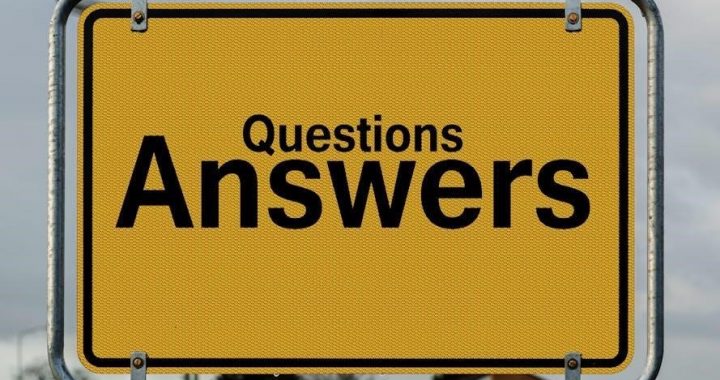Welcome to our comprehensive guide on the Pennsylvania Notary Public Exam! This resource provides essential insights, practice questions, and expert tips to help you prepare effectively and succeed with confidence․
Overview of the Pennsylvania Notary Public Exam
The Pennsylvania Notary Public Exam is a critical step to becoming a commissioned notary in the state․ It consists of 30 multiple-choice questions, with a passing score of 67% (at least 20 correct answers)․ The exam covers essential topics such as notary laws, ethical practices, and procedural requirements․ Candidates have 60 minutes to complete the test․ The exam is administered by Pearson VUE and focuses on ensuring candidates understand their duties and responsibilities as notaries․ Proper preparation is key, as the exam evaluates both general knowledge and Pennsylvania-specific laws․ Utilizing practice exams and study guides can significantly enhance readiness and confidence․

Understanding the Exam
The Pennsylvania Notary Public Exam evaluates knowledge of notary laws, procedures, and ethical practices․ It features multiple-choice questions, requiring careful preparation to ensure success․
Eligibility Requirements for the Pennsylvania Notary Public Exam
To qualify for the Pennsylvania Notary Public Exam, applicants must meet specific criteria․ They must be at least 18 years old, a U․S․ citizen, and a Pennsylvania resident or work in the state․ A criminal background check is required, and applicants must not have prior felony convictions․ Additionally, they must complete a state-approved notary education course and pass the exam․ The commission term is four years, and applicants must submit their bond and oath of office within 45 days of appointment․ These requirements ensure only qualified individuals become notaries, maintaining the integrity of the notary public role in Pennsylvania․
Types of Questions and Answers
The Pennsylvania Notary Public Exam features multiple-choice questions, true/false statements, and scenario-based queries․ These assess knowledge of legal requirements, notary procedures, ethical practices, and technical aspects of notarization․ Questions cover topics like document authentication, witness requirements, and jurisdictional boundaries․ Practice exams and flashcards provide sample questions with verified answers, helping candidates understand correct responses and rationales․ The exam also includes pretest questions that do not affect the score; By reviewing these resources, candidates can familiarize themselves with the question formats and content, ensuring thorough preparation for the exam․
General Knowledge Questions
General knowledge questions on the Pennsylvania Notary Public Exam cover foundational topics such as the role of a notary, legal terminology, and basic procedures․ These questions ensure candidates understand the fundamental principles of notarization, including the importance of impartiality, accuracy, and ethical conduct․ Examples include defining notarial acts, identifying required elements in a notary journal, and understanding the purpose of a notary seal․ Practice materials provide sample questions and answers, enabling candidates to assess their grasp of these essential concepts and prepare effectively for the exam․
Pennsylvania-Specific Notary Public Laws
Pennsylvania-specific notary public laws are a critical component of the exam, focusing on state statutes and regulations․ These questions test knowledge of the Notary Public Law, including the jurisdiction of notaries, which is coextensive with the Commonwealth․ Candidates must understand the four-year commission term, the requirement to record bonds and oaths in the county recorder of deeds’ office, and the importance of maintaining a notary journal․ Additionally, questions cover prohibited acts, such as performing notarizations outside the state without proper authorization․ Practice materials, like the PA Notary Public Practice Exam 2025, provide sample questions and answers to help candidates master these state-specific legal requirements․

Preparing for the Exam
Preparing for the Pennsylvania Notary Public Exam requires practice exams, study guides, and understanding the exam format to ensure readiness for the test․
Practice Exams and Sample Questions
Practice exams and sample questions are essential tools for preparing for the Pennsylvania Notary Public Exam․ These resources provide a realistic simulation of the actual test, helping candidates familiarize themselves with the format and content․ Many practice exams include 30-400 questions with verified answers, covering topics such as legal requirements, ethical considerations, and notary-specific laws․ By completing these exams, candidates can identify areas for improvement and build confidence․ Additionally, flashcards and study guides are available to reinforce key concepts․ Regular practice ensures a thorough understanding of the material, increasing the likelihood of achieving a passing score of 67% or higher within the 60-minute time limit․
How to Use Practice Exams Effectively
To maximize the benefits of practice exams, establish a structured study routine․ Begin by setting aside dedicated time to complete full-length practice tests under timed conditions, simulating the actual exam environment․ After each test, review the answers to understand mistakes and identify knowledge gaps․ Focus on weak areas by revisiting relevant study materials․ Utilize flashcards for quick memorization of key terms and concepts․ Additionally, analyze question formats and eliminate incorrect options before selecting an answer․ Regularly track progress to monitor improvement and adjust study strategies as needed․ Consistent practice ensures readiness and boosts confidence for the Pennsylvania Notary Public Exam․
Exam Format and Structure
The Pennsylvania Notary Public Exam consists of 30 multiple-choice questions designed to assess knowledge of notary laws, procedures, and ethics․ Candidates have 60 minutes to complete the exam․ Out of the 30 questions, 5 are pretest questions used for future exam development and do not affect the final score․ To pass, applicants must correctly answer at least 40 questions, achieving a minimum score of 67%․ The exam focuses on legal requirements, notary practices, and ethical considerations, ensuring candidates are well-prepared to perform their duties effectively․ Understanding the format helps candidates manage time and approach questions strategically during the test․
Passing Score and Time Limit
To pass the Pennsylvania Notary Public Exam, candidates must achieve a minimum score of 67%, which requires correctly answering at least 40 out of 60 questions․ The exam allows 60 minutes for completion, providing ample time to review and answer all questions thoroughly․ The questions are designed to test knowledge of notary laws, ethical practices, and procedural requirements․ By understanding the scoring system and time constraints, candidates can better manage their exam strategy and ensure they meet the necessary standards to become a commissioned notary public in Pennsylvania․

Key Topics to Focus On
Focus on legal requirements, ethical practices, common procedures, and technical aspects of notarization to ensure comprehensive preparation for the Pennsylvania Notary Public Exam․
Legal Requirements and Procedures
Understanding Pennsylvania’s legal requirements for notaries is crucial․ The notary’s jurisdiction is coextensive with the Commonwealth, and their commission lasts four years․ They must record their bond, oath of office, and commission in the county recorder’s office within 45 days․ Notaries must maintain a journal for all notarizations, including dates, times, and details of the acts performed․ They are required to administer oaths and affirmations, verify identities, and ensure signers understand the documents; Legal procedures also involve avoiding unauthorized practices, such as performing notarizations outside their jurisdiction or misrepresenting their authority․ Familiarity with these laws ensures compliance and proper execution of notarial duties․
Ethical Considerations for Notaries
Ethical conduct is central to a notary’s role, ensuring impartiality and integrity․ Notaries must avoid conflicts of interest, never notarize documents for family members, and refrain from providing legal advice․ They should maintain confidentiality, especially regarding sensitive information․ Ethical dilemmas may arise, requiring sound judgment to uphold public trust․ Misrepresentation of authority, such as using terms like “notario público,” is strictly prohibited․ Notaries must also avoid unauthorized practices, like performing acts outside their jurisdiction․ Adhering to ethical standards not only prevents legal consequences but also builds credibility and trust in their professional services, essential for upholding the integrity of notarial functions in Pennsylvania․
Common Notary Procedures and Practices
Notaries in Pennsylvania frequently perform tasks such as acknowledgments, jurats, and affirmations․ They verify identity through valid photo ID and ensure signers understand document contents․ Administering oaths and affirmations is another key duty․ Notaries must maintain a journal documenting each notarization, including details like names, dates, and document types․ Proper venue formatting is essential, ensuring county information is accurate․ They must also record their commission expiration date and signature․ These practices ensure legal validity and accountability, reflecting the critical role notaries play in upholding trust and integrity in official transactions․ Adherence to these procedures is vital for compliance with state laws and professional standards․
Technical Aspects of Notarization
Mastering the technical aspects of notarization ensures compliance with Pennsylvania laws․ Notaries must use an official stamp or seal, adhering to specific design requirements․ Properly recording the date, time, and venue in the notary journal is crucial․ Handling electronic notarizations involves secure digital tools and maintaining separate journals for tangible and electronic records․ Understanding the legal terminology, such as “acknowledgment” and “jurat,” ensures accurate document execution․ Additionally, notaries must verify identities using government-issued IDs and recognize when to refuse a notarization if a signer appears coerced or lacks mental capacity․ These technical details uphold the integrity and validity of notarial acts, safeguarding public trust and legal standards․

Study Materials and Resources
Utilize official study guides, practice exams, and online courses offering detailed questions, answers, and explanations to enhance your preparation and understanding of the exam material effectively․
Recommended Study Guides
Several study guides are available to help prepare for the Pennsylvania Notary Public Exam․ “Ace The Pennsylvania Notary Public Exam” by Angelo Tropea is a popular choice, featuring 225 practice questions and 2 full-length practice exams․ It covers notary public law, legal highlights, and detailed explanations․ Additionally, the Pennsylvania Notary Public Practice Exam 2025 offers a digital PDF study guide with practice questions and answers․ Examzify provides an interactive platform with flashcards, practice questions, and explanations․ These resources are designed to familiarize candidates with the exam format and content, ensuring thorough preparation for success․
Print and Digital Study Materials
Both print and digital study materials are widely available for the Pennsylvania Notary Public Exam․ Print materials include comprehensive study guides like “Ace The Pennsylvania Notary Public Exam,” which offers detailed legal insights and practice questions․ Digital resources provide flexibility, with downloadable PDF guides and interactive platforms․ The Pennsylvania Notary Public Practice Exam 2025 is a popular digital option, featuring practice questions, answers, and explanations․ Additionally, websites like Examzify offer online courses and flashcards․ These materials cater to different learning preferences, ensuring candidates can study effectively whether they prefer traditional books or modern digital tools․
Sample Study Guide Overview
A sample study guide for the Pennsylvania Notary Public Exam provides a structured approach to preparation, offering practice questions, answers, and detailed explanations․ It includes sections on legal requirements, notary procedures, and ethical considerations․ The guide often features realistic simulations of the actual exam, helping candidates familiarize themselves with the format and timing․ Many guides also include flashcards and interactive tools to enhance memorization and understanding․ By working through the sample guide, candidates can identify areas needing improvement and build confidence in their knowledge․ This resource is a valuable supplement to other study materials, ensuring a well-rounded preparation strategy․
Flashcards for Memorization
Flashcards are an excellent tool for memorizing key concepts and facts for the Pennsylvania Notary Public Exam․ They often focus on critical areas such as legal requirements, ethical considerations, and common notary procedures․ Each card typically features a question or term on one side and the answer or explanation on the other․ Topics may include the role of a notary, documentation procedures, and Pennsylvania-specific laws․ Many flashcard sets are available digitally, allowing for easy review on-the-go․ They also help identify weak areas, enabling targeted study․ Regular use of flashcards can improve retention and ensure a strong foundation for exam success․
Online Resources and Courses
Online resources and courses are invaluable for preparing for the Pennsylvania Notary Public Exam․ Websites like Examzify and Notary․org offer comprehensive study materials, including practice exams, interactive lessons, and flashcards․ These platforms provide detailed explanations for correct and incorrect answers, helping you understand key concepts․ Video tutorials and webinars are also available, covering topics such as notary laws, ethical practices, and procedural requirements․ Additionally, many online courses include progress tracking and customizable study plans to optimize your learning experience․ These resources are particularly useful for those who prefer self-paced learning or need flexibility in their study schedule․

Test-Taking Strategies
Master time management, eliminate incorrect options, and understand question formats to enhance accuracy․ Review answers strategically and utilize practice exams to refine your approach effectively․

Time Management During the Exam
Effective time management is crucial for success on the Pennsylvania Notary Public Exam․ With a 60-minute time limit and 30 multiple-choice questions, allocate approximately 2 minutes per question․ This allows time to read each question carefully, analyze options, and select the best answer․ Budget extra time to review your responses before submitting․ Prioritize questions you’re confident about first, then return to challenging ones․ Avoid spending too long on a single question, as it may jeopardize your ability to complete the exam․ Practice under timed conditions using sample questions to build stamina and improve decision-making speed․ Staying calm and focused will help you manage your time wisely and achieve a high score․
Understanding Question Formats
The Pennsylvania Notary Public Exam features multiple-choice questions designed to test your knowledge of notary laws, procedures, and ethical practices․ Questions may present scenarios, legal definitions, or practical applications, requiring careful analysis․ Some questions will ask you to identify correct actions, while others may test your understanding of prohibited practices․ True/false questions also appear, focusing on specific legal requirements․ To excel, familiarize yourself with question formats through practice exams․ Pay attention to wording, such as “must,” “shall,” or “may,” as these indicate legal obligations․ Practice active reading and elimination techniques to improve accuracy․ Understanding question formats enhances your ability to answer confidently and efficiently during the exam․
Elimination Techniques for Multiple-Choice Questions
Mastering elimination techniques is crucial for success on the Pennsylvania Notary Public Exam․ Start by carefully reading each question to understand its focus․ Identify and eliminate clearly incorrect options based on your knowledge of notary laws and procedures․ For instance, if a question asks about the primary responsibility of a notary and one option suggests verifying the legality of document content, you can eliminate it since that’s beyond a notary’s role․ Similarly, options suggesting a notary provides legal advice are incorrect․ Narrow down choices by focusing on key terms like “administer oaths,” which align with core notary duties․ For unfamiliar questions, look for contextual clues or partially correct answers that can be ruled out․ Avoid options with absolute terms like “always” or “never,” as legal concepts rarely allow absolutes․ Practice these strategies with sample questions to enhance your exam performance and confidence․

Post-Exam Procedures
After passing the exam, notaries must record their bond, oath of office, and commission in the county recorder’s office within 45 days․ Maintain a journal for notarizations and renew your commission every four years․
Recording the Bond, Oath of Office, and Commission
After being appointed as a Pennsylvania Notary Public, you must record your bond, oath of office, and commission at the county Recorder of Deeds within 45 days․ This step is crucial for validating your notary commission․ Failure to do so may result in penalties or invalidation of your appointment․ Proper documentation ensures compliance with state regulations and confirms your authority to perform notarial acts․ Additionally, maintaining accurate records is essential for accountability and transparency in your duties as a notary public․
Maintaining Your Notary Journal
Maintaining a notary journal is a critical responsibility for Pennsylvania Notaries Public․ This journal records every notarization performed, ensuring transparency and accountability․ It should include details such as the date, time, type of notarization, and the identity of the signer․ Properly documenting each act helps prevent fraud and provides a legal record if disputes arise․ Failure to maintain an accurate journal may result in penalties or legal consequences․ It is essential to keep the journal secure and retain it for the duration of your commission and beyond, as required by state law․ Accurate record-keeping demonstrates professionalism and compliance with ethical standards․
Renewal Process for Notary Commission
The renewal process for a Pennsylvania Notary Public commission must be completed every four years․ Notaries must submit a reappointment application to the Secretary of the Commonwealth․ The process includes completing a renewal application, paying the required fee, and meeting all eligibility criteria․ A new bond and oath of office must also be filed with the recorder of deeds in the county where the notary maintains their office․ Failure to renew on time may result in penalties or the need to reapply as a new notary․ Proper renewal ensures continuous authority to perform notarial acts in accordance with state law and regulations․

Additional Information
The average salary for a Pennsylvania Notary Public ranges from $30,000 to $50,000 annually․ Continuing education is crucial to stay updated on legal changes and best practices․
Salary Expectations for Notaries in Pennsylvania
The average salary for a Pennsylvania Notary Public ranges from $30,000 to $50,000 annually, depending on experience, location, and the volume of notarial acts performed․ Urban areas like Philadelphia tend to offer higher salaries compared to rural regions․ Understanding these economic prospects can motivate your study efforts and provide clarity on the financial benefits of becoming a Notary Public in Pennsylvania․
Importance of Continuing Education
Continuing education is crucial for Pennsylvania Notaries to stay updated on legal changes, ethical practices, and professional standards․ It ensures compliance with evolving notary laws and maintains public trust․ Regular training helps Notaries avoid errors, reduce liability risks, and enhance their skills in performing notarial acts․ Additionally, continuing education supports career advancement and earning potential, as knowledgeable Notaries are more sought after․ The Secretary of the Commonwealth and professional associations often provide resources and courses to facilitate ongoing learning․ Investing in education demonstrates commitment to excellence and ensures long-term success in the field․
Resources from the Secretary of the Commonwealth
The Secretary of the Commonwealth offers invaluable resources for Pennsylvania Notaries, including official study guides, practice exams, and updates on notary laws․ Their website provides detailed information on exam requirements, application processes, and commission renewal․ Additionally, they publish bulletins and notifications to keep Notaries informed about legal changes and best practices․ These resources are essential for both initial certification and ongoing professional development, ensuring compliance and competence․ Utilizing these official materials helps candidates prepare effectively for the exam and maintain their role as trusted public officials․
Mastering the Pennsylvania Notary Public Exam requires thorough preparation and practice․ Utilize study guides, practice exams, and online resources to ensure success․ Stay confident and informed!
Final Tips for Success
To excel on the Pennsylvania Notary Public Exam, create a structured study schedule and consistently review practice questions․ Focus on understanding legal requirements, ethical considerations, and technical aspects of notarization․ Utilize flashcards to memorize key terms and concepts․ Practice under timed conditions to improve time management skills․ Review explanations for incorrect answers to avoid repeating mistakes․ Stay calm and confident during the exam, ensuring you read each question carefully․ By combining thorough preparation with strategic test-taking techniques, you’ll be well-equipped to achieve success and become a certified Pennsylvania Notary Public․
Importance of Thorough Preparation
Thorough preparation is essential for success on the Pennsylvania Notary Public Exam․ Dedicate time to study official materials, practice exams, and review key topics like legal requirements, ethical considerations, and technical aspects of notarization․ Understanding the exam format and content ensures familiarity, reducing anxiety․ Regularly test your knowledge with sample questions to identify and address weaknesses․ Mastery of Pennsylvania-specific laws and procedures is critical, as they differ from other states․ By consistently reviewing and practicing, you’ll build confidence and competence, ensuring you’re fully prepared to achieve a passing score and excel as a certified Notary Public․

Additional Resources
Explore Pennsylvania Notary Public Practice Exams and study guides from trusted sources like Notary․org and Examzify․ Access digital and printable materials, including 400 free practice questions․
Recommended Websites and Forums
For comprehensive preparation, visit trusted websites like Notary․org and Examzify, which offer detailed study guides, practice exams, and flashcards․ Pennsylvania Notary Public Practice Exams on Docsity provide verified answers and updated questions․ Additionally, forums like NotaryBonding․com and Tableau Public offer valuable insights and community support․ These platforms ensure access to accurate and relevant materials, helping you stay informed and confident throughout your exam preparation journey․ Utilize these resources to supplement your studies and achieve success in becoming a Pennsylvania Notary Public․
Notary Associations and Support Groups
Joining notary associations and support groups can enhance your preparation and professional growth․ The National Notary Association (NNA) offers extensive resources, including study guides and networking opportunities․ Notary․net provides forums for discussing exam strategies and best practices․ Local Pennsylvania notary groups, such as the Pennsylvania Notary Association, host workshops and webinars․ These communities provide valuable insights, exam tips, and ongoing support, ensuring you stay informed and connected․ Participating in these groups can significantly aid in your exam preparation and help you build a strong foundation for your notary career․
